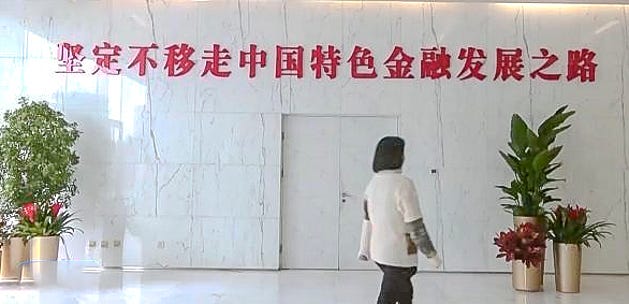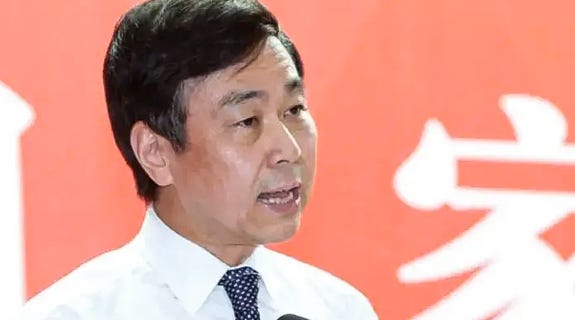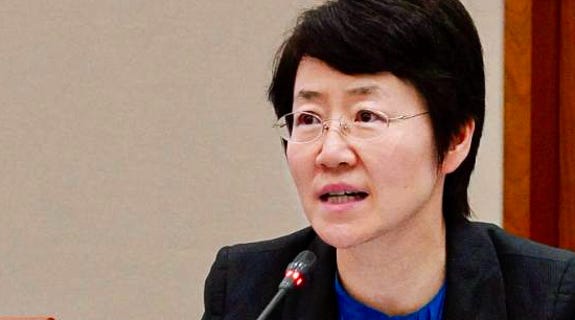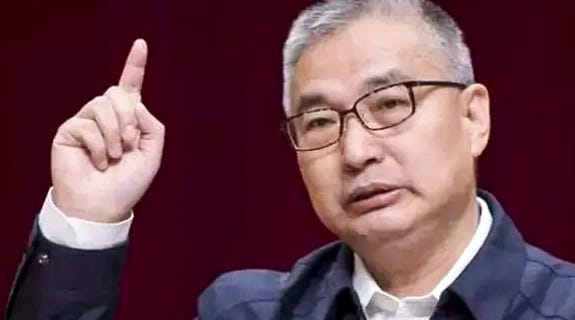Warm welcome all…
With the Third Plenum starting today, I am reposting a brief Itamar wrote a few weeks ago on the messaging from Beijing around the Plenum.
Even though demand remains weak, stimulus is rejected. Still in post-pandemic recovery, the focus will be on building out the supply side. Shifts seen as positive by Beijing, notably boosting the state’s role in ‘guiding’ capital to build common prosperity will get top billing.
All the links to our other analyses and commentary are open-access if you want to dig a little deeper.
Happy reading
Philippa
the time has come to clarify the new playbook
The 20th Third Plenum, set for 15–18 July, will proclaim the PRC’s economic direction. Third Plenums are set pieces of Party policy: this one will hear and pass a ‘Decision on Further Comprehensively Deepening Reform and Advancing Chinese Modernisation’. This 2024 decision's title echoes the 2013 one which launched Xi Jinping’s 习近平 vision of a market economy guided by the state.
The Decision will repackage the meaning of ‘deepening reform and advancing Chinese modernisation’, already a mainstay of the Xi administration's policy. A June Politburo meeting provided some pointers: by 2035, the PRC will build a ‘high-level’ socialist market economy aligned with the Party's centennial goal of becoming a mid-level developed nation (per capita income of some US$25,000, double current levels). The meeting flagged potentially recalibrating the ‘socialist market economy’ under which the state leads, doubling down on rapid industrialisation, burnishing the 'China Miracle' while guiding private enterprise.
Holding the Plenum in late 2023 would have been customary. Instead, a year of speculation about the delay resulted. The ‘winding recovery’ of the post-COVID economy, to cite the 2023 Central Economic Work Conference, was a partial explanation.
'Unequal, uncoordinated and unsustainable' development, rife since Wen Jiabao 温家宝 first used the phrase in 2007, is causing social conflict to mount and demands action. So explains Ren Zhongping 任仲平, authoritative Party nom-de-plume in a front-page article in People’s Daily on 26 June. Factional politics, another popular explanation, cannot be excluded.
eyes on the market
It is clear enough that the previously dominant economic model premised on real estate and infrastructure expansion, coupled with stimulus in times of need, is out of favour—as warns a stark account of Xi's hankering for the pre-reform economy. Premier Li Qiang 李强 has, nonetheless, admitted that the current economic malaise, manifested in deflation and poor producer prices, stems mostly from low confidence and weak demand. Stimulus, explained Li at summer Davos, is not in the cards, as it could worsen the ongoing recovery and restructuring. The Plenum may clarify Beijing’s already discernible economic approach.
A symposium held by Xi on 24 May gave a first glimpse of the centre’s remedies. Of note were the attendees: delegates of nine enterprises and SMEs (small and medium enterprises), centring the discussion on state-market relations. This is the third time in Xi's administration that he has formally conferred with business, and the first time with foreign MNC heavyweights.
A 4 June CPPCC (Chinese People's Political Consultative Conference) Standing Committee meeting added the qualifier ‘high-level’ to the socialist market economy. Proposals submitted by Yi Gang 易纲 former PBoC governor and current CPPCC Standing Committee member, reprised unfinished market reforms foreshadowed in 2013
deepening market reform
free circulation of production factors
fair competition
removal of measures adverse to consumption
building rules-based governance
framework for enterprises and consumers
state acting within the confines of PRC rules-based governance
high-level opening
Reform drives development, claims Xi, above all by addressing social conflict (‘contradictions’). The task at hand is to adjust relations of production, code for structures of ownership, last highlighted in Xi’s discourse on new productive forces. Also up for adjustment is the superstructure, again code for social and political institutions. Focal points discussed at the symposium include
developing venture capital
governance of private enterprise
attracting global business
integrating Hong Kong into the ‘new development’ paradigm
macroeconomic governance
Passed by an 11 June meeting of the Central Comprehensively Deepening Reform Commission, ‘Opinions on improving Chinese-style modern enterprises’ bears witness to impending change on this institutional front.
As reform-era PRC scholars have long argued, no modern nation is purely market- or state-led. Even the Maoist planned era allowed for a mixed set-up, albeit subject to arbitrary intervention. The Xi administration, while deeply fearful of the market escaping its cage (‘disorderly expansion’), will settle for remote control of the bird. It will justify whatever compromise is arrived at with the rhetoric of 'patriotic imperatives' and risk management.
new-era stability
Governance must be modernised, declared the Politburo at its June meeting. Development assumes confidence and sound expectations, explains Jia Kang 贾康 formerly at MoF (Ministry of Finance) Institute of Financial Sciences. Supporting private enterprise in principle, Beijing has failed to give it a definitive bill of health, undermining confidence. Private sector development, a policy target since July 2023, lacks doctrinal vindication even now, stunting growth, warns Ouyang Xiaoming 欧阳晓明, former All-China Federation of Industry and Commerce secretary-general. Clearly an intervention at the Plenum is hoped for by many.
Macroeconomic governance must move with the times, Zhang Bin 张斌, a CASS (Chinese Academy of Social Sciences) Institute of World Economics and Politics researcher, and a delegate to the Jinan symposium, wrote in Study Times. Increasing the impetus for growth, stabilising the macro environment and social fairness should anchor policy. Hastening economic transition by supporting private firms, macro policy should structurally promote consumption, suggests Xie Dong 解冬 a China National Democratic Construction vice chair and CPPCC Standing Committee member.
The misfit between Beijing’s desire to open more and mounting trade friction with ’certain regions’, flags the need for a breakthrough at the Plenum, argues Lu Feng 卢锋 Peking University National Development Institute. As the post-WWII global monetary system fractures, the PRC, the largest emerging economy, is uniquely obliged to balance its macroeconomy, building a new order, he adds.
factoring-in risk
October 2023’s CFWC (Central Financial Work Conference) has already set the tone for financial policy, yet harping on financial risk has become ever more prevalent in the leadup to the Plenum, signalling more on the way.
‘High-quality development’, a New Era mantra, requires curbing linked risks in real estate, finance and local government debt, explains Han Wenxiu 韩文秀 Central Financial and Economic Affairs Commission Office. All of these stem from poor-quality growth.
Risk fears were telegraphed at a symposium with local financial officials on 21 May. Only days later, Xi’s symposium in Jinan reiterated the point. The PRC is looking to become a major financial power in the long term, echoing language first introduced at the CFWC. But it must curb financial risk in the short term, insists Vice Premier and economic czar He Lifeng 何立峰. State coordination and strengthened regulation from local financial organisations are needed.
The CPC seems to be taking an ever more organisational approach to financial risk, a trend likely to be aired at the Plenum. May’s Politburo meeting passed measures on accountability, providing an early template.
senses of gain
Making social development a measure of economic progress is back on the front burner. The June pre-Plenum Politburo meeting reiterated Xi's rubric that the fruits of reform must be shared with the people. Both Xi’s May symposium in Jinan and the June CPPCC meeting stressed improving people’s lives as a major task in this moment of uncertainty.
In a full page spread on 24 June, People’s Daily extolled the need for ‘common prosperity’, a theme sounded in 2021 but put on hold as COVID lockdowns slammed the economy. Now is the time for this theme to harmonise with those of high-quality development and deepening reform, advises Zhang Laiming 张来明 Development Research Centre. To Zhao Zhimin 赵志敏 Chinese Academy of Social Sciences secretary-general, this means rejecting the supremacy of capitalism, materialism and money. Given the need to shore up confidence in private business, the centre has a difficult balancing act at hand.
economic voices
Lu Feng 卢锋 | Peking University National Development Institute deputy director
'Contradictions’ in the Bretton Woods framework mount with the rise of new major powers, largest of which is the PRC. Its internal state impacts the world at large, not least its polarised economy.
Displayed in successful industry upgrading and capacity expansion, supply-side factors are dominant, yet weak demand, flat prices, and resulting employment and profitability pressures are troubling. Claiming concern for demand, Beijing fails to resource it as it does supply.
Given this strong supply-side, coupled with the PRC scale, RMB internationalisation seems a stronger candidate for global monetary makeover than other options. But continued structural imbalance makes this less feasible. The Plenum, Lu hopes, will have some answers about the PRC role in an evolving world system.
An economist focused on China’s global economic engagement, Lu has produced a flurry of research on next steps for the WTO.
Xie Dong 解冬 | China National Democratic Construction vice chair and CPPCC Standing Committee member
Fiscal and financial institutions should encourage transition in consumption and investment, explains Xie. Macro policy currently fails to coordinate: stimulus fails to move consumption while investment in one direction crowds it out in another.
Division of labour is needed between fiscal spending and finance: state action to remould income structure, and finance, more attuned to the consumption needs of lower income groups, offering them new products.
Investment too, needs more savvy: government bonds need managed differentiation, ensuring they are used on well-matched projects.
Shanghai-born Xie holds an MA (1995) in English literature from Fudan, going on to work in exporting knitwear. Working her way from translator to manager of the Shanghai Trade Authority, Xie went on to work in the city’s financial agency and other posts and was appointed one of its deputy mayors in 2023.
Zhang Laiming 张来明 | Development Research Centre deputy director
PRC material development has reached a point where common prosperity needs promotion, explains Zhang. Novel ‘contradictions’ (conflicts) in the New Era create problems demanding common prosperity be integrated into deepening reform.
The equity/efficiency equation (set by Deng Xiaoping as ‘efficiency comes first, with due attention to equity; reset in the Hu-Wen era as ‘equalising efficiency and equity‘) again needs resetting. This entails better remunerating according to work done, while better-distributing income, especially through redistribution. New ways are needed to raise middle and lower-income groups earnings from productive factors (land, capital, technology and data). This entails going beyond wages and boosting asset dividends to increase the middle class.
Peking University law school graduate Zhang works on political, economic, and social issues. His whole career since the early 1990’s spent at the DRC, he became a deputy director in 2013 and is also a member of the CPPCC.







